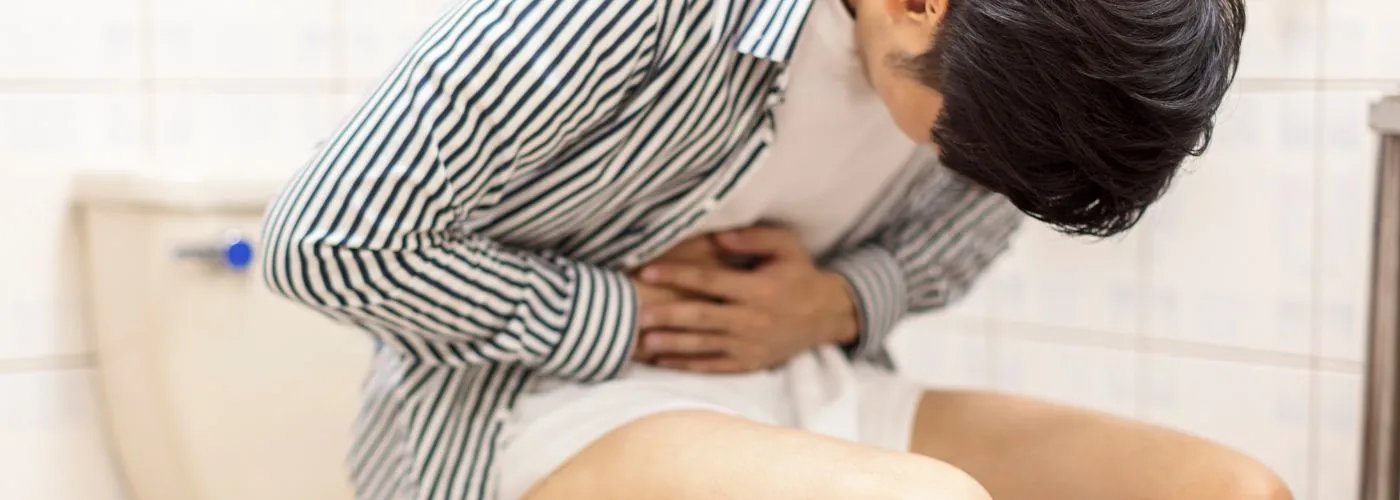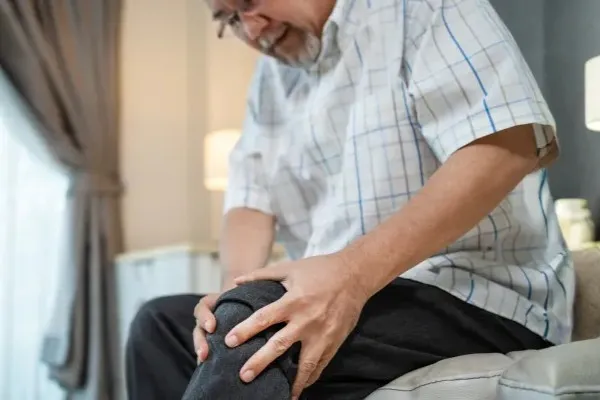Topics
Constipation means having fewer bowel movements than normal or passing hard, dry stools. It can feel uncomfortable or even painful. Most people get constipated at some point, and it usually resolves on its own. Often constipation is caused by everyday habits, for example, eating too little fibre, not drinking enough fluids, or being too sedentary. Ignoring the urge to go to the toilet can make things worse (National Institutes of Health, 2022). The good news is that simple changes in diet and routine often prevent or relieve constipation.
Healthy Diet and Fluids
One of the best ways to prevent constipation is to eat enough fiber. Fiber adds bulk and moisture to the stool, helping it pass through the gut. High-fibre foods include:
- Wholegrain cereals and breads
- Fruit and vegetables
- Legumes and beans, seeds and nuts
Increasing fiber is one of the first steps to relieve constipation. For many people, simply adding more fruit, vegetables and whole grains to each meal will make stools softer and easier to pass.
It is also important to drink plenty of fluids. Water and other drinks help fibre do its job by keeping stools soft. As Harvard Health notes, “Water, other liquids, and foods with a high water content can help fiber work better, making stool softer and easier to pass”. In practice, this means aiming for about 8 glasses of fluid a day (around 1.5–2 litres) water is best. Herbal teas, dilute fruit juices or soups also count. Avoid relying too much on caffeine or alcohol, as these can lead to dehydration. By combining fiber and fluids, you give your bowels a better chance to stay regular.
Exercise and Lifestyle
Regular physical activity is another key to healthy bowels. Engaging in physical activity, even a daily walk , helps stimulate the muscles in your intestines. Medical reviews indicate that individuals who exercise regularly generally have fewer problems with constipation. One analysis showed that moderate exercise significantly improves constipation symptoms. You do not have to run marathons: simple activities like walking, swimming or gentle stretching can help keep things moving. In general, try to avoid long periods of sitting or lying down (Cui et al., 2024). Even light activities (for example, standing up and moving around every hour) can be beneficial.
Besides diet and exercise, other lifestyle factors matter too. Stress and anxiety sometimes affect bowel habits, so relaxation techniques (deep breathing, gentle yoga) may help. Finally, if you smoke, consider cutting down or quitting: smoking is known to affect gut motility in some people. In short, maintaining an active, balanced lifestyle gives your digestive system the best support.
Good Toilet Habits
To prevent constipation, establish a daily toilet routine—ideally after meals or in the morning when bowel reflexes peak. Respond promptly to urges to avoid stool hardening. Sit with knees slightly above hips (use a footstool) for optimal alignment. Avoid straining to prevent hemorrhoids; breathe calmly and lean forward gently (Diaz et al., 2023). Allow up to 10 minutes without rushing; if unsuccessful, try later. Key habits: consistent timing, prompt response to urges, proper posture, and relaxed visits. These steps improve bowel regularity and reduce complications.
When to Get Help
Most constipation resolves with dietary adjustments, adequate hydration, and regular routine changes. Seek medical advice if symptoms persist beyond two weeks or if severe pain, blood in stool, or weight loss occurs. Laxative use without guidance is discouraged. Constipation is often temporary; prioritising fibre, fluids, exercise, and consistent toilet habits supports long-term regularity. Early intervention and lifestyle changes typically alleviate discomfort, with professional help available if needed.
Frequently Asked Questions about Good Bowel Habits
1. How often should I have a bowel movement?
There is no single "normal" number. For some people, it is once a day; for others, it is every 2–3 days. Constipation is generally defined as having fewer than three bowel movements a week, especially if stools are hard, dry, or difficult to pass.
2. What are the signs of constipation?
Pass stools less than three times a week, have hard or lumpy stools, strain during bowel movements, feel like your bowels have not emptied.
3. Can constipation be serious?
Occasional constipation is common and usually not serious. However, if it becomes long-term or is linked to other symptoms like bleeding, weight loss, or severe pain, you should see a doctor. Chronic constipation may need medical treatment.
4. What foods help relieve constipation?
Foods high in fiber can help soften stools and make them easier to pass. These include wholegrain cereals and breads, fruits like apples, pears, and berries, vegetables such as broccoli, spinach, and carrots, legumes like lentils and beans, nuts and seeds and drinking plenty of water is also essential.
5. When should I see a doctor about constipation?
See your doctor if:
- You have been constipated for more than 2 weeks
- You have blood in your stool
- You have unexplained weight loss
- You feel very bloated or have severe abdominal pain
Book an Appointment at Gleneagles Hospitals
Constipation may seem minor, but persistent symptoms can affect your quality of life. If you have concerns about your bowel health or would like to speak with a healthcare professional, contact us to book an appointment at your nearest Gleneagles Hospitals. Our experienced team is here to guide you toward better digestive health. To arrange a consultation or health screening, please contact the health screening centre at your closest Gleneagles Hospitals. You may also book an appointment via our website or download the MyHealth360 application from the Google Play Store or Apple App Store.








